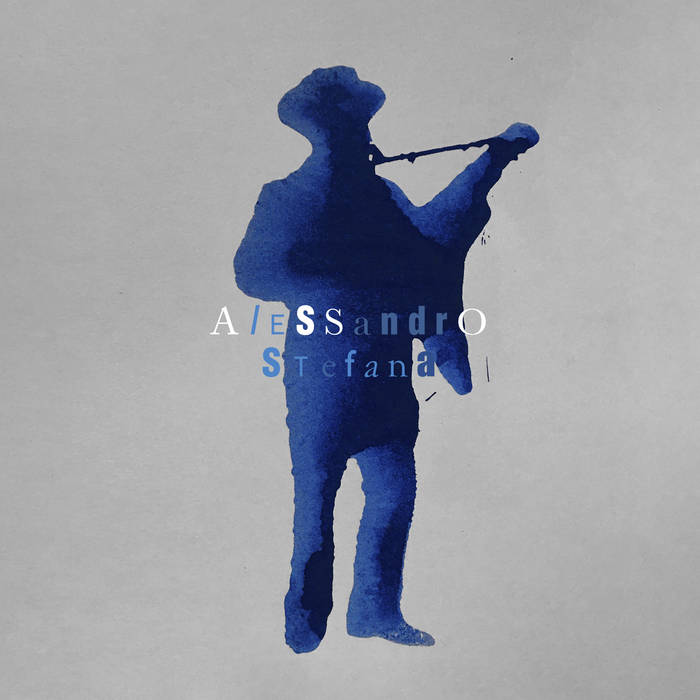The Breakdown
You could use up a whole review word count with guitarist/producer and multi-instrumentalist Alessandro Stefana’s illustrious CV but some snapshots and name drops will give the flavour. He’s played on albums by Faith No More vocalist Mike Patton (Mondo Cane), Micah P Hinson (I Lie To You), Penguin Café (Rain before seven) and Calexico (El Mirador). He’s been a close collaborator with acclaimed Italian poet and songwriter Vinicio Capossela for decades, as a band member, producer and arranger and his production credits stretch further to the legendary Alessandro Alessandroni (Ennio Morricone’s soundtrack whistler). A guitarist’s guitarist Stefana has worked with Bill Frissell and the redoubtable Marc Ribot, who also played on Asso’s other solo album ‘Poste e Telegrafi’. In between times he has led the leftfield Americana band Guano Padano through a couple of albums and was a key component of PJ Harvey’s ‘The Hope Six Demolition Project‘. Stefana was also born some time in Brescia, Italy.
Out of this bio, maybe that connection with Polly Jean is of most significance when unpicking his second solo album, titled logically ‘Alessandro “Asso” Stefana’ and available now via Ipecac Recordings. You get the feeling in her role as the release’s Executive Producer Harvey instilled Stefana with the confidence and reassurance he needed to complete the project without compromising. The result is an album which doesn’t simply bundle his musical influences into one place, it sees Stefana stepping back, absorbing his experiences and revealing his own music, faithfully rootsy but inventively contemporary.
The collection follows something of an orbital flow, beginning its journey tentatively with two brief but elegant pieces: the sombre, neoclassical Fading Away where the cello’s scratchy call pierces an organ’s monotone hum; and then the hymnal Farewell to Dust, which sways softly as the piano elevates on some resolute gospel chords. Stefana talks about wanting the album to sound “suspended between earth and sky” and perhaps these two short tracks are preparation, tuning you into those two parameters, ethereal expanse and grounded familiarity. What is clear is that after this intriguing prologue the album hovers magically in its own natural space.
It’s impressive how throughout this collection Stefana creates images of vastness and scale, without calling on multiple layers of electronic sound. Out Of The Blue uses icy electric guitar patterns and his faithfully melancholic pedal-steel to open up a widescreen aperture. Uncluttered with a Morricone drift about it, the tune paints an expansive Americana landscape from conventional but heart tugging melodic forms. The House covers similar territory but with Stefana’s crisp acoustic out front, pulsing proudly and picking out those American Primitive swivels. Shimmering electronica complements the song’s Fahey stride calling to mind William Tyler’s desert soundscapes or Glenn Jones’s restrained digital experimentation on his ‘Waterworks’ album.
So while Stefana’s merging of the folksy and abstract may not be entirely ground-breaking, he brings such an honest transparency to his music that it has a real individuality about it. Listening to the almost Appalachian twang of The Wandering Minstrel as it rolls through some kind of dramatic outback blues, you can hear the melodic arcs from the Balkans and Celtic tradition ringing through the song. Such ‘high and lonesome’ resonance reaches a pinnacle on Stefana’s new album with three tunes which re-frame mighty Roscoe Holcomb songs. To entwine your own music with such a seminal voice takes not only chutzpa but a real artistic sensitivity. Holcomb’s intense, raw hillbilly blues, which surfaced to wider recognition in the mid-sixties folk revival, was forged through a life of rural hardship, poverty and hard graft. So navigating its inclusion without seeming to appropriate for the sake of ‘coolness’ is a tricky undertaking but one which Stefana undoubtedly pulls off.
On Born And Raised In Covington, a broadside ballad which Holcomb personalised by relocating the song to the Kentucky city, Stefana keeps Roscoe’s untamed voice as the focus and the accompanying music, a sparse rhythmic two step, in deferential support. The yearning lap-steel adds emotional emphasis without melodrama and the hard bitten, harshness of Holcomb’s original yarn is left reliably intact. Any song that closes with the line “he used to wear the old straw hat, but now he wears the crown” doesn’t need messing with and Stefana shows that respect. More daringly on the stoic I Am A Man Of Constant Sorrow, Stefana wraps Holcomb’s voice in a gothic echo, and brings a subtle churchyard quality to the tune through a sighing chapel organ and vaulted guitar tugs. Holcomb often presented this song of resilience raw in a Baptist style acapella, but perhaps this careful reimagining will allow its timeless message to spread even further.
Stefana concludes his Roscoe trilogy with the dramatic Moonshiner, brilliantly sustaining the song’s end of the line weariness with a sonorous bass drum heartbeat and a final sun-setting pedal-steel elegy. It would make for a poignant album closer but for Stefana, an inspiring creative risk taker, that would be too easy. Instead the album’s final track is a long form, drone based instrumental which rolls misty and illusive through its course. From the warm tidal wash of organ, the distant pipe call and chime bowl ring, a melody emerges and widens. It’s a brave move, swathing the memories of an album in a undulating pool of new age electronica, but one that locates ‘Alessandro ‘Asso’ Stefana’ in its rightful experimental home.
This is an album that leaves a resounding impression, a work that rests easy alongside Chuck Johnson’s ‘Balsams’ or Matthew Scott Dawson’s ‘Find Your Self Lost’ as a significant forward step in ambient country territory. But beyond that it has its own mystery, appeal and character, the individual voice of Alessandro Stefana that you recognise, on the basis of this collection’s foundation, has so much more to tell us.
Get your copy of ‘Alessandro “Asso” Stefana’ by Alessandro Stefana from you local record store or direct from Ipecac Recordings HERE














No Comment